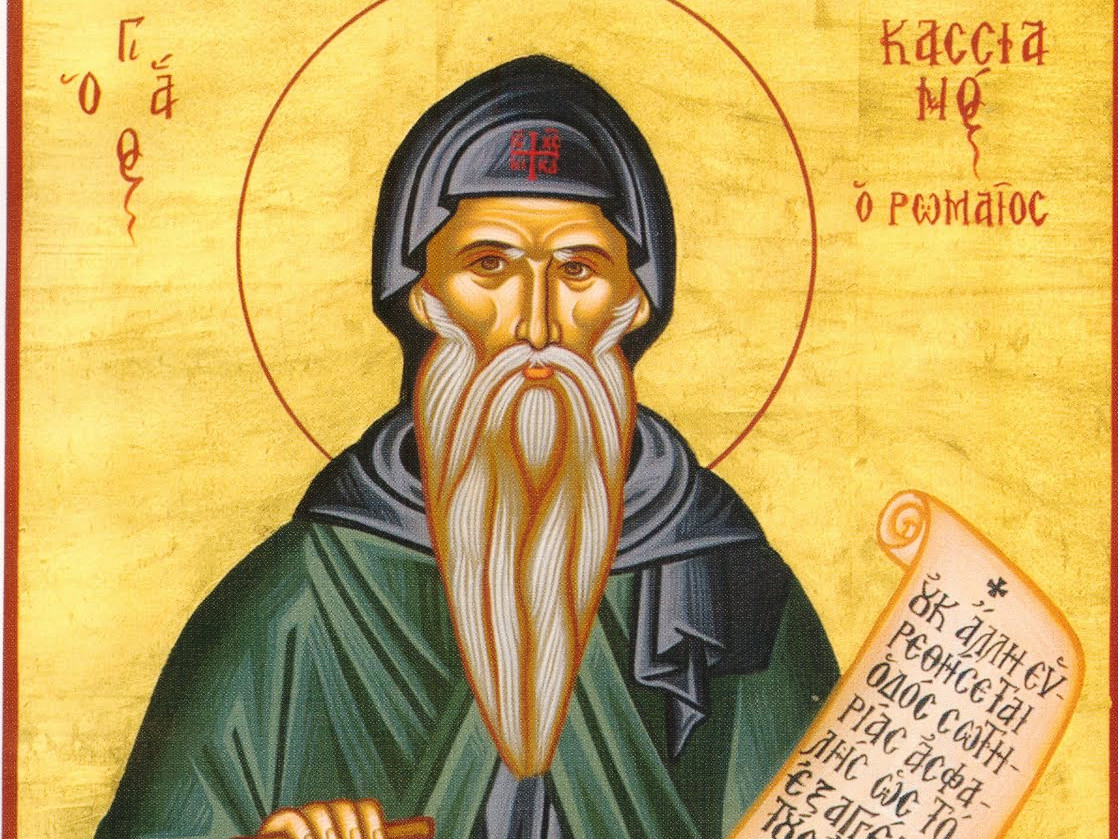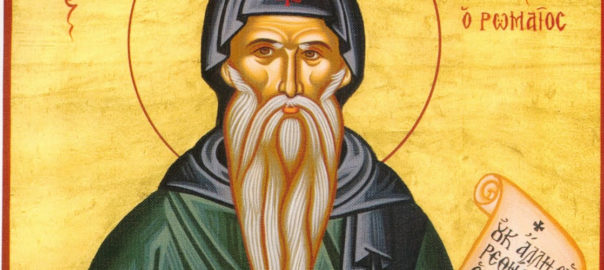
John Cassian (360-435 AD) was a theologian and munk, perhaps of Gallic origin. After spending years in Palestine and Egypt, Cassian founded a monastery in southern Gaul (France) near Marseilles. In his Conferences, Cassian recorded spiritual and theological conversations with elders from the monastery in Scetis. Much of these conversations deal with the relationship between free will and grace.
In the 13th conference, Cassian records a Chæremon arguing against gnostic/augustinian predestination of the elect, explaining that God rather intends all to be saved, but that he will sometimes have to save us against our own will by putting us on the right track even when we are not aware of it.
Of the main purpose of God and His daily Providence.
FOR the purpose of God whereby He made man not to perish but to live for ever, stands immovable. And when His goodness sees in us even the very smallest spark of good will shining forth, which He Himself has struck as it were out of the hard flints of our hearts, He fans and fosters it and nurses it with His breath, as He “willeth all men to be saved and to come to the knowledge of the truth,” for as He says, “it is not the will of your Father which is in heaven that one of these little ones should perish,” and again it says: “Neither will God have a soul to perish, but recalleth,” meaning that he that is cast off should not altogether perish (1 Tim. 2:4; Matt. 18:14; 2 Sam. 14:14). For He is true, and lieth not when He lays down with an oath: “As I live, saith the Lord God, for I will not the death of a sinner, but that he should turn from his way and live.” (Ezek. 33:11). For if He willeth not that one of His little ones should perish, how can we imagine without grievous blasphemy that He does not generally will all men, but only some instead of all to be saved? Those then who perish, perish against His will, as He testifies against each one of them day by day: “Turn from your evil ways, and why will ye die, O house of Israel?” And again: “How often would I have gathered thy children together as a hen gathereth her chickens under her wings, and ye would not;” and: “Wherefore is this people in Jerusalem turned away with a stubborn revolting? They have hardened their faces and refused to return.” (Matt. 23:37; Jer. 8:5.) The grace of Christ then is at hand every day, which, while it “willeth all men to be saved and to come to the knowledge of the truth,” calleth all without any exception, saying: “Come unto Me, all ye that labour and are heavy laden, and I will refresh you.” (Matt. 11:28). But if He calls not all generally but only some, it follows that not all are heavy laden either with original or actual sin, and that this saying is not a true one: “For all have sinned and come short of the glory of God;” nor can we believe that “death passed on all men.” (Rom. 3:23; Rom. 5:12). And so far do all who perish, perish against the will of God, that God cannot be said to have made death, as Scripture itself testifies: “For God made not death, neither rejoiceth in the destruction of the living.” (Wisdom 1:13). And hence it comes that for the most part when instead of good things we ask for the opposite, our prayer is either heard but tardily or not at all; and again the Lord vouchsafes to bring upon us even against our will, like some most beneficent physician, for our good what we think is opposed to it, and sometimes He delays and hinders our injurious purposes and deadly attempts from having their horrible effects, and, while we are rushing headlong towards death, draws us back to salvation, and rescues us without our knowing it from the jaws of hell. (John Cassian, Conferences 13,7)
